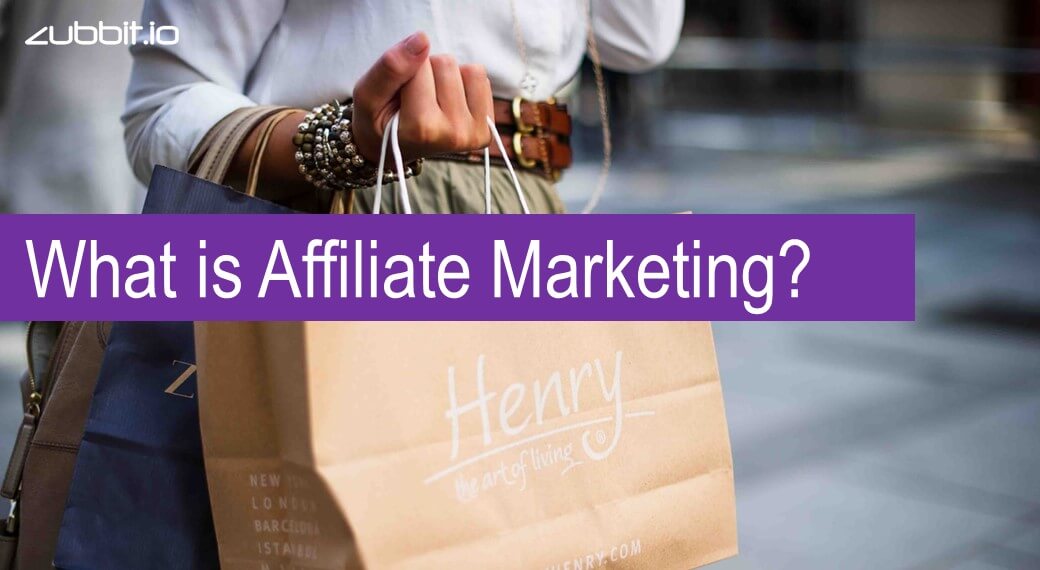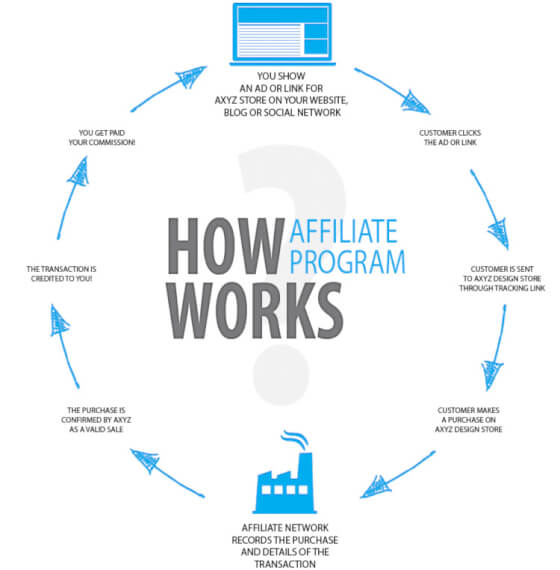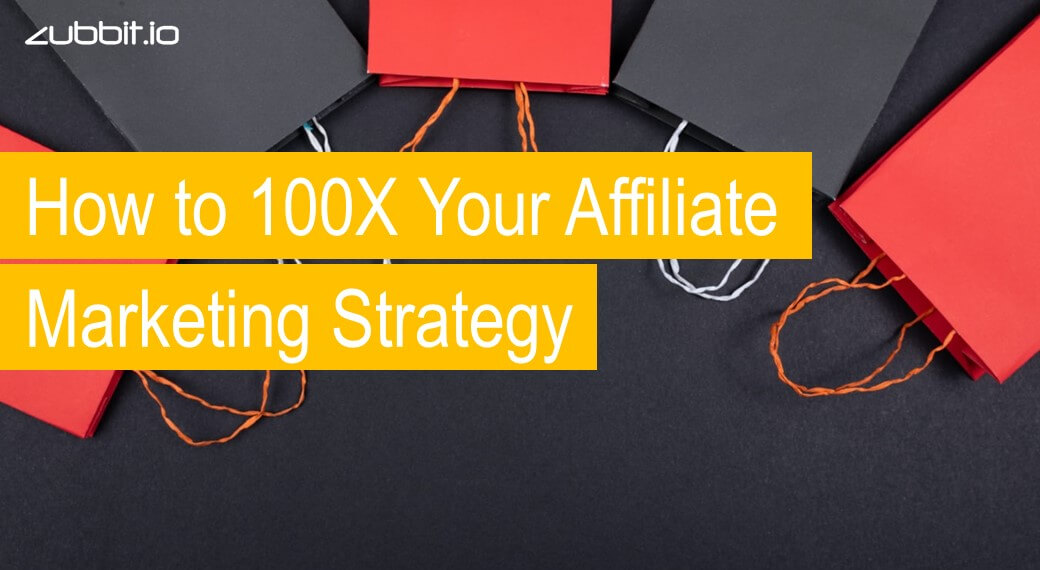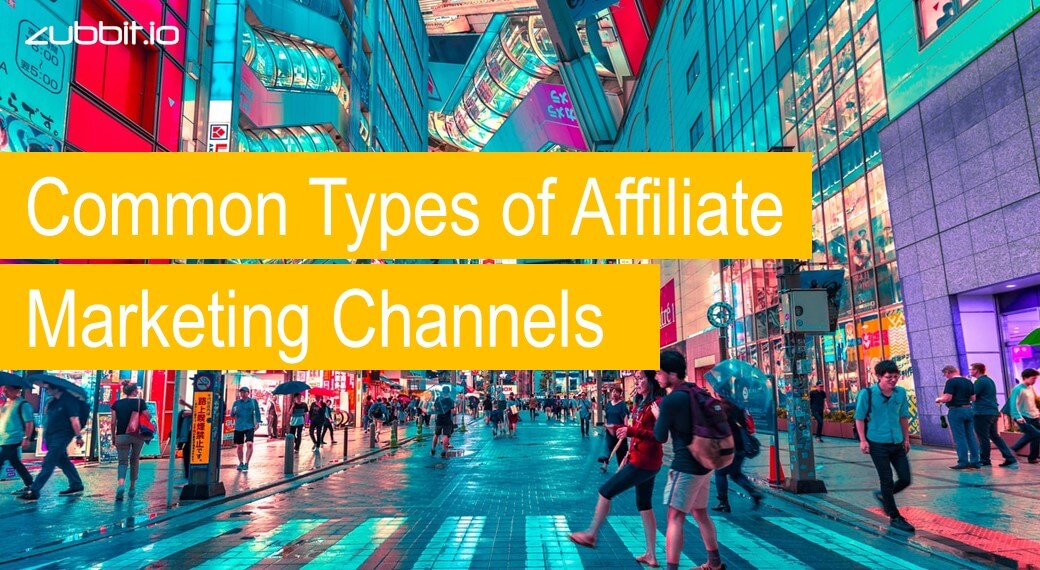

What is Affiliate Marketing?
Affiliate marketing is the process by which an affiliate earns a commission for marketing another person’s or company’s products. The affiliate simply searches for a product they enjoy, then promotes that product and earns a piece of the profit from each sale they make. The sales are tracked via affiliate links from one website to another.

How Does Affiliate Marketing Work?
Because affiliate marketing works by spreading the responsibilities of product marketing and creation across parties, it manages to leverage the abilities of a variety of individuals for a more effective marketing strategy while providing contributors with a share of the profit. To make this work, three different parties must be involved:
- Seller and product creators.
- The affiliate or advertiser.
- The consumer.
Let’s delve into the complex relationship these three parties share to ensure affiliate marketing is a success.
1. Seller and product creators.
The seller, whether a solo entrepreneur or large enterprise, is a vendor, merchant, product creator, or retailer with a product to market. The product can be a physical object, like household goods, or a service, like makeup tutorials.
Also known as the brand, the seller does not need to be actively involved in the marketing, but they may also be the advertiser and profit from the revenue sharing associated with affiliate marketing.
For example, the seller could be an eCommerce merchant that started a dropshipping business and wants to reach a new audience by paying affiliate websites to promote their products. Or the seller could be a SaaS company that leverages affiliates to help sell their marketing software.
2. The affiliate or publisher.
Also known as a publisher, the affiliate can be either an individual or a company that markets the seller’s product in an appealing way to potential consumers. In other words, the affiliate promotes the product to persuade consumers that it is valuable or beneficial to them and convince them to purchase the product. If the consumer does end up buying the product, the affiliate receives a portion of the revenue made.
Affiliates often have a very specific audience to whom they market, generally adhering to that audience’s interests. This creates a defined niche or personal brand that helps the affiliate attract consumers who will be most likely to act on the promotion.
3. The consumer.
Whether the consumer knows it or not, they (and their purchases) are the drivers of affiliate marketing. Affiliates share these products with them on social media, blogs, and websites.
When consumers buy the product, the seller and the affiliate share the profits. Sometimes the affiliate will choose to be upfront with the consumer by disclosing that they are receiving commission for the sales they make. Other times the consumer may be completely oblivious to the affiliate marketing infrastructure behind their purchase.
Either way, they will rarely pay more for the product purchased through affiliate marketing; the affiliate’s share of the profit is included in the retail price. The consumer will complete the purchase process and receive the product as normal, unaffected by the affiliate marketing system in which they are a significant part.
How Do Affiliate Marketers Get Paid?
A quick and inexpensive method of making money without the hassle of actually selling a product, affiliate marketing has an undeniable draw for those looking to increase their income online. But how does an affiliate get paid after linking the seller to the consumer?
The answer can get complicated.
The consumer doesn’t always need to buy the product for the affiliate to get a kickback. Depending on the program, the affiliate’s contribution to the seller’s sales will be measured differently.
The affiliate may get paid in various ways:
1. Pay per sale.
This is the standard affiliate marketing structure. In this program, the merchant pays the affiliate a percentage of the sale price of the product after the consumer purchases the product as a result of the affiliate’s marketing strategies. In other words, the affiliate must actually get the investor to invest in the product before they are compensated.
2. Pay per lead.
A more complex system, pay per lead affiliate programs compensates the affiliate based on the conversion of leads. The affiliate must persuade the consumer to visit the merchant’s website and complete the desired action — whether it’s filling out a contact form, signing up for a trial of a product, subscribing to a newsletter, or downloading software or files.
3. Pay per click.
This program focuses on incentivizing the affiliate to redirect consumers from their marketing platform to the merchant’s website. This means the affiliate must engage the consumer to the extent that they will move from the affiliate’s site to the merchant’s site. The affiliate is paid based on the increase in web traffic.

Conclusion
Affiliate Marketing is a great way of making either a side-income or even a full-time income from it.
But if you do want to take it to the next level then make sure you know all the tricks to 100X your efforts.
Read More…..How to 100X Your Affiliate Marketing Strategy.


